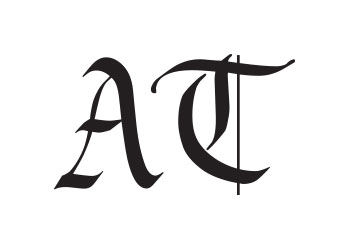The NATO-Russia Council, which consists of all 30 NATO Allies and Russia, met in Brussels on Wednesday, 12 January 2022, to discuss the situation in Ukraine and the implications for European security.
“This was not an easy discussion. But that is exactly why this meeting was so important,” said NATO Secretary General Jens Stoltenberg, who chaired the meeting.
The Secretary General noted that NATO Allies are ready to meet again with Russia to discuss several topics in deeper detail and concrete proposals, since “there are opportunities for constructive engagement which should not be missed, in the interest of security in Europe.”
During the meeting emerged the existed significant differences between NATO Allies and Russia on these issues.
“Our differences will not be easy to bridge,” said Stoltenberg in a press conference following the meeting. “But it is a positive sign that all NATO Allies and Russia sat down around the same table, and engaged on substantive topics. After two years where such meetings were not possible to convene.”
Russia has raised the proposals already published in December demanding to stop admitting any new members to NATO and withdraw forces from eastern Allies.
NATO Allies reasserted the NATO Open Door policy and the right for each country to choose its security agreements. They made explicit their intention and ability to protect and defend each other, including the presence of troops in the eastern part of the Alliance.
Nevertheless, both Russia and NATO allies expressed the need to resume dialogue and explore a schedule of future meetings. In particular, NATO Allies are ready to meet again with Russia to discuss concrete proposals to increase the transparency of military exercises, prevent dangerous military incidents, and reduce space and cyber threats. NATO Allies emphasized that they will make every effort to reach a political way forward.
“Allies have also offered to look at arms control, disarmament, and non-proliferation. Including to address reciprocal limitations on missiles, and to address nuclear policies,” added General Secretary.

General Secretary admitted that the dialogue is difficult “but even more necessary”.
“I also welcome the bilateral consultations between the United States and Russia,” said Jens Stoltenberg. “These are opportunities for constructive engagement which should not be missed, in the interest of security in Europe.”
Following the NATO-Russia Council, Secretary General met EU Defence Ministers in Brest, France on Wednesday evening (12 January 2022) to discuss security issues, focussing on Russia’s continued military build-up in and around Ukraine.
The Secretary General stressed that the close partnership between NATO and the European Union is even more important at this critical moment for European security.
NATO-Ukraine Commission
On Monday, 10 January 2022, Secretary General welcomed Deputy Prime Minister for European and Euro-Atlantic Integration of Ukraine Olga Stefanishyna to NATO Headquarters for a meeting of the NATO-Ukraine Commission. The meeting has focused on Russia’s continued military build-up.
Secretary General called Ukraine “a valued and long-standing partner” with the right to choose its own path. He noted that the meeting marks “the start of an important week for European security”, which includes the meeting of the NATO-Russia Council on 12 January, bilateral talks between the United States and Russia, and a meeting of the OSCE.
Mr. Stoltenberg said that the NATO-Ukraine Commission is an opportunity to exchange assessments on the situation, express the strong support of the Allies for Ukraine, and coordinate ahead of diplomatic engagements with Moscow.
NATO-Ukraine cyber cooperation against cyber attacks
Ukraine has been the target of continuous cyber attacks. In a Statement, General Secretary strongly condemns the cyber attacks on the Ukrainian Government.
NATO cyber experts in Brussels are engaged in exchanging information with their Ukrainian counterparts on current malicious cyber activities. Allied experts in-country assist the Ukrainian authorities on the ground.
In the coming days, NATO and Ukraine will sign an agreement on enhanced cyber cooperation, including Ukrainian access to NATO’s malware information sharing platform. NATO’s strong political and practical support for Ukraine will continue.


